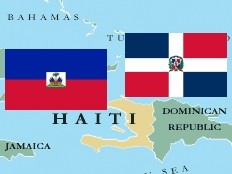|
||||||||||||||||||
|
|
Haiti - Economy : Prohibit work to Haitians, measures fraught with consequences 19/11/2010 13:58:18
Construction Sector: The construction industry calls these new measures "unreasonable". Prohibit hiring of Haitian labor will cause more insecurity in the country, said Jaime Gonzalez, president of the Association of Builders and housing developers (Acoprovi). He wished to clarify that such measure will also lead significant delays in the property sector "what will make these people in the street, if they do not have any more work and cannot earn money any more ?" Jaime Gonzalez recalled the importance of Haitian labor in the construction field, citing as examples: Bavaro, Samana, where 95% of construction workers are Haitians or Santo Domingo or they are nearly 75%. For the President of the Acoprovi "The first thing the government should do is to avoid illegal migration in order not to increase the number of unemployed Haitian". Defending his association, he stressed that it was not the engineers or promotors which hire the Haitian workforce, but the foremen who have no other choice because the workforce in the Dominican this area is generally limited. He wished to advocate compliance with the work Code in particular Article 135, which states that any company in the Dominican at least 80% of workers must be Dominican, and is therefore not necessary to reinforce the law by new restrictions, but to enforce it in business. Tourism Sector: Arturo Villanueva, businessman and vice-president of the National Association of hotels and restaurants, said its members would comply with all measures taken by government authorities "whatever happens, we will assume our responsibilities because it is an affair of state". It must be said that the tourism sector represents $4 billion of annual revenues for the Dominican Republic. Although little data are available, in 2007 was estimated at nearly 20,000 Haitians, the number of workers in the tourism sector in Bavaro and Punta Cana (mostly undocumented), not counting Haitian labor working in all other tourist areas of the country. Arturo Villanueva believes that even with the likely increase, today, of this figure, the situation is perfectly manageable without having to take extreme measures. If we add to these two important sectors, restrictions on the sale of used clothing and shoes, those concerning the sale of food homemade, cominig from Haiti on the binational markets and measures concerning control and limitation of Haitian informal trade vendors in the streets (measures whose details are not yet known), It goes without saying that without a reasonable compromise, the situation is likely to be volatile between Haitians and Dominicans in the weeks and months ahead. The number of Haitians living illegally in the Dominican Republic is estimated at nearly one million See also: https://www.haitilibre.com/en/news-1689-haiti-epidemic-the-dominican-republic-reinforces-its-health-measures.html https://www.haitilibre.com/en/news-1680-haiti-economy-dramatic-restrictions-on-binational-markets.html https://www.haitilibre.com/en/news-1678-flash-cholera-entered-legally-in-the-dominican-republic.html BF / HaitiLibre
|
|
|
Why HaitiLibre ? |
Contact us |
Français
Copyright © 2010 - 2024 Haitilibre.com |



